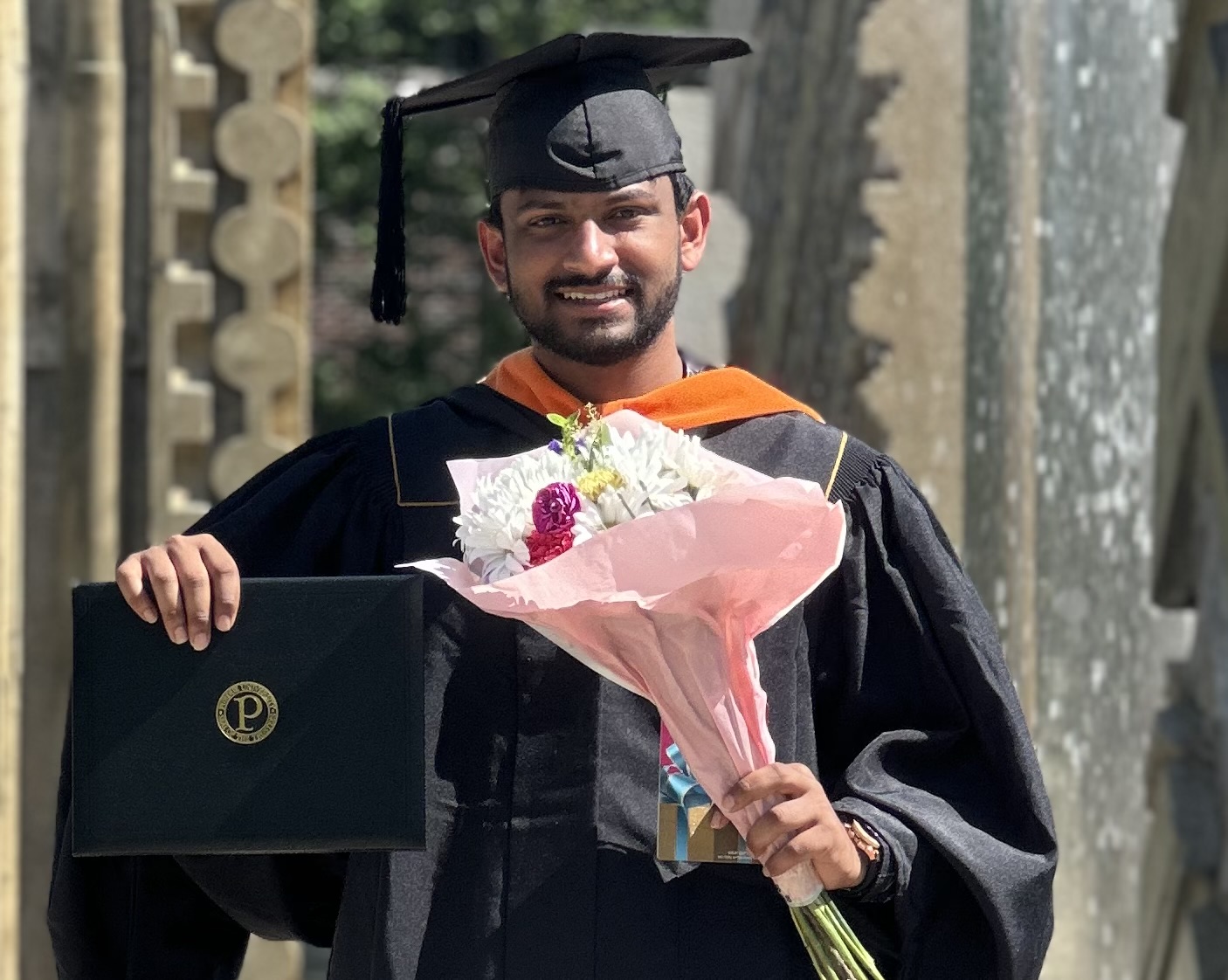How Purdue’s Chemical Engineering PMP Program Prepared Me for Industry Roles: David’s Story
How Purdue’s Chemical Engineering PMP Program Prepared Me for Industry Roles: David’s Story
From Undergraduate in India to Purdue’s Chemical Engineering Professional Master's Program
I came to this program directly after completing my undergraduate degree in Chemical Engineering in India. During my undergraduate years, I was enthusiastically involved in academic research related to fuel cells and nanofluids, and even contributed to two to three research papers alongside my professors.
Even though I didn’t have industry experience at that time, I knew I wanted to pursue a professional path in the U.S. This made me look for a graduate program that could not only deepen my technical knowledge but also help me develop practical, employable skills. Based on recommendations from friends in India and some of my own research, I chose Purdue’s Chemical Engineering PMP program. It particularly stood out to me because of its strong curriculum and industry connections.
My Journey in the Chemical Engineering PMP Program
As someone without prior work or practical experience, I felt it would be a challenge to directly enter the workforce in the U.S. The PMP program seemed like the right bridge between academia and industry. The coursework at Purdue provided a solid foundation, preparing me for engineering roles in a global industry. As I mentioned, the advice and encouragement from my friends and family also played a significant role in guiding me to choose Purdue. However, once in the program, its structure, network, and support validated my decision. The curriculum was rigorous but extremely relevant. It helped me think critically, solve industry-level problems, and communicate effectively.
Learning That Translates to Impact
One course that had a particularly strong impact on me and my career was Process Synthesis. Taught by Professor Masuku, who emphasized practical, up-to-date knowledge, it gave me insight into modern developments in fuel cells and electrolysis technologies. This wasn’t just theoretical knowledge, as it prepared me for current trends in the energy sector.
Another major highlight was the Capstone Project, which offered a hands-on experience working directly with an industry client. Although my role focused on environmental engineering tasks, I also developed essential professional skills, particularly in communicating effectively with various industry professionals. This experience proved to be a turning point, ultimately helping me secure a full-time position at Clariant as an environmental engineer.
Additionally, thanks to early training sessions from Purdue’s career services team, I learned how to approach interviews, polish my resume, and apply strategically. This was my first experience working in the U.S. industry, and I felt ready for it from day one because of the skills and mindset the PMP program gave me. From organizing alumni panels to offering guidance on time management and career planning, they were always available to help. Special thanks to the Program Manager for helping me navigate the legal and administrative steps for my 8-month co-op opportunity—it made a big difference.
Advice for Future PMP Students
Don’t get disheartened. The job search can be daunting, and I went through my share of setbacks. At one point, both of my roommates (also in the PMP program) got interview calls while I didn’t. It was discouraging, but it pushed me to keep applying and improve my approach. Eventually, it paid off.
If you’re considering Purdue’s PMP program, come in with an open mind and a determined attitude. Take advantage of every opportunity—whether it’s a part-time role, a resume workshop, or a conversation with an alum. It all adds up.

